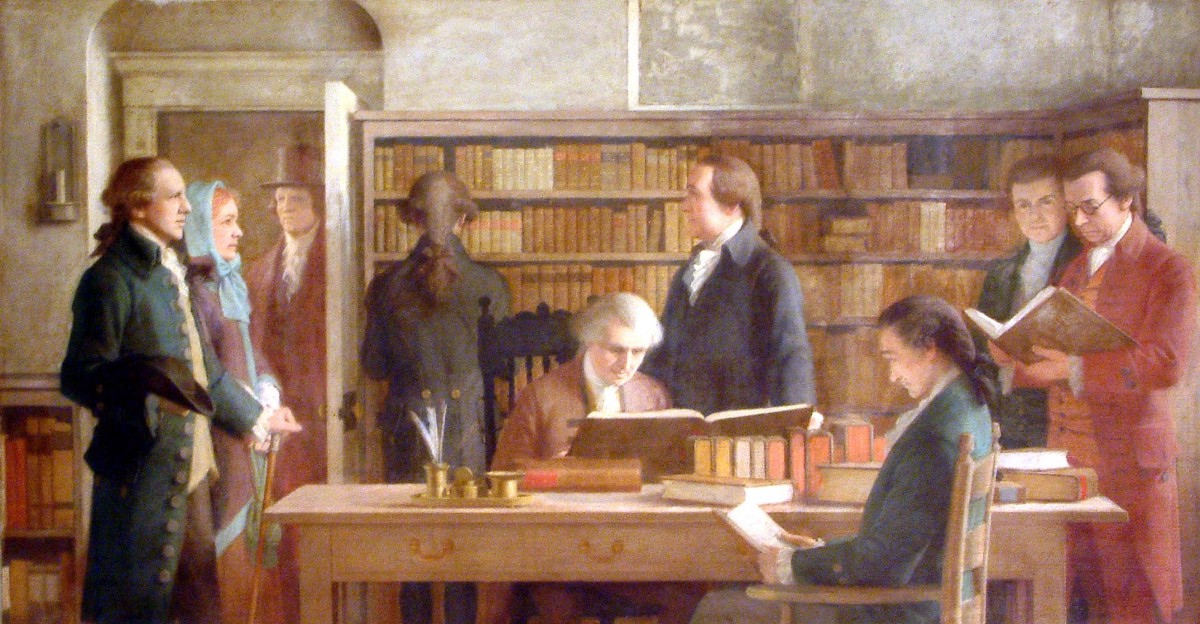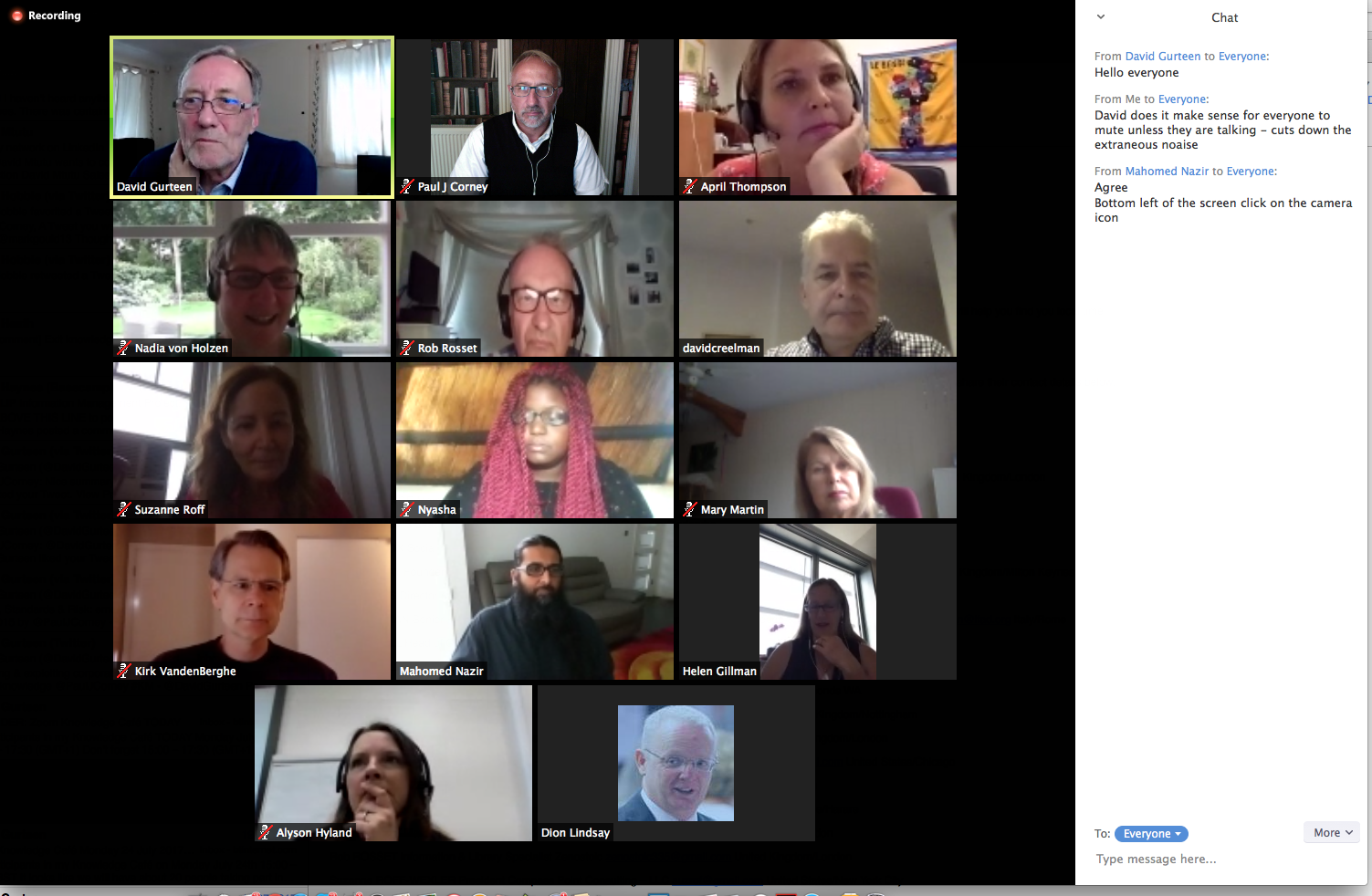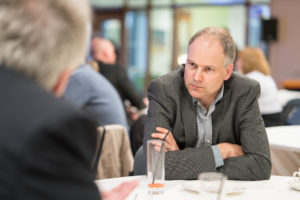Contents
- Introduction to the August 2017 Knowledge Letter
- Benjamin Franklin's Junto Club and Franklin Circles
- How to disagree and what you can't say
- The RSA has plans for a 21st century enlightenment coffeehouse
- Zooming around the world to Singapore and Sydney
- Was James Damore acting in good faith and does it matter?
- What is rationality?
- Upcoming Knowledge Events
- Gurteen Knowledge Tweets: August 2017
- Subscribing and Unsubscribing
- The Gurteen Knowledge Letter
Introduction to the August 2017 Knowledge Letter
As most of you will know I give a great deal for free. It is part of the KM culture.
My philosophy has always been to share material freely online and to only charge for face-to-face events where I appear in person. Having said that, my London Knowledge Cafés have always been free, and I rarely get paid for speaking at conferences. I have also started to charge a small fee for my Zoom virtual Cafés.
Recently I discovered Patreon - a website that allows people to become "patrons" and pay me a small sum each month (typically $1 though it can be more) each in recognition of my work. I signed up a few months ago, and without much publicity, I have now got four patrons who in total pay me $10 a month.
If you like and value my work and would like to become a patron then please take a look here.
Benjamin Franklin's Junto Club and Franklin Circles

Franklin's Junto Club was about self-development and improving his local community.
What I like about the Junto Club concept is that anyone can start their own modern day Junto.
You can decide on your community and select, twelve or so members from diverse backgrounds.
I think the focus should be on community improvement not on personal development as individual learning comes naturally from taking part in the Junto.
So what community are you part of that you would like to improve? It could be your local community as in the case of Franklin, or any other community you care about and to which you belong.
This includes the organization for which you work. The Junto Club is not a community of practice but a form of community of innovation.
The other thing to do is to review Franklin's 24 questions and four assertions and update them so that they are more suited to the present day and your chosen community.
Interestingly, having spent some time thinking about modern day Junto Clubs or even Junto Cafés (a cross between the Junto and the Knowledge Café) I came across Franklin Circles - another form of modern day Junto focused on societal improvement.
Let me know if you feel inspired to form your own Junto Club or Franklin Circle.
How to disagree and what you can't say
A beautiful piece here by Paul Graham on How to disagree where he attempts to create a disagreement hierarchy of six different levels from "name calling" to "refuting the central point".
His bottom line is "don't be mean" and his rationale is that it makes people happier. I don't think howver that this is the main argument. You are more likely to convince people of your point by being "less mean" and moving higher up the hierarchy in you conversational style.
If you enjoyed the above article, I think you will enjoy this one too What you cant say. This comment about Galileo particularly set me chuckling:
"If Galileo had said that people in Padua were ten feet tall, he would have been regarded as a harmless eccentric. Saying the earth orbited the sun was another matter. The church knew this would set people thinking."
Thanks to James Damore (yes the guy who wrote the Google memo) for pointing me to both of these articles via his twitter stream. (You can understand why both articles resonate with him.)
This all makes interesting and relevant fodder for my blook on Conversational Leadership. And it is at the heart of what Knowledge Management should be all about - "making better sense of the world".
The RSA has plans for a 21st century enlightenment coffeehouse
Given the metaphor that underpins my Knowledge Cafés I have long been interested in and written about the Enlightenment Coffeehouses of 17th and 18th Century London.
Out of the coffeehouses came a number of institutions that exist to this day such as the London Stock Exchange, Lloyds of London and the auction houses Sotheby's and Christie's also have their origins in coffeehouses.
Another was the Royal Society of Arts (RSA) which was established in a coffeehouse in 1754 by a group of people who came together with a shared vision for a better tomorrow.
I am a member of the RSA have long thought and even suggested that they should turn part of their London premises into a coffeehouse in the tradition of those long lost coffeehouses.
I doubt that I had anything to do with it but that is just what they have decided to do - to create a 21st century enlightenment coffeehouse. I am so looking forward to it.
Zooming around the world to Singapore and Sydney

Planning now to run a Café for Dubai. I will also be running one as part of World Values Day. Here I am going to be a little bit more ambitious - all my virtual Cafés so far have been for less than 20 people but for the World Values Day I am going to shoot for 100 participants. A little bit of a risk but I'll learn a lot and hopefully it will attract people from many different countries. More on both these Cafés soon.
If you would like to be the first to hear about my Zoom events, please sign-up to my Virtual Café mailing list.
Was James Damore acting in good faith and does it matter?
I am sure many of you are by now familiar with the Google memo controversy where a Google software engineer James Damore was fired for a memo that questioned Google's diversity policies. If you have not read the memo you will find it here.
The memo has caused a heated online debate with people fiercely arguing in support of James Damore or against him.
To me, the issue is not who is right or wrong, it is was James Damore acting in good faith, was he genuinely trying to open up a conversation or was he expressing misogynist views.
I have read the memo and watched several interviews with him and I believe he was sincere in his motives.
If you are not familiar with the controversy and wish to form your own opinion here is some interesting reading.
Two arguments against James Damore:
- Read YouTube CEO Susan Wojcicki's Response to the Controversial Google Anti-Diversity Memo
- So, about this Googler's manifesto.
- I'm An Ex-Google Woman Tech Leader And I'm Sick Of Our Approach To Diversity!
- PC Corporate Culture Is a Plague That Government Helps Spread
There is a lot of argument going on but very little constructive discussion - this is the best I could find: Ask A Female Engineer: Thoughts on the Google Memo.
So what do you make of it? Was he acting in good faith? If he was expressing misogynist views, should he have been fired? And even if he was acting in good faith, should he still have been fired?
Want to know what others think? Take a look at this poll: Poll: Google was wrong to fire engineer over diversity memo
A final thought, what is the real question we should be asking here?
What is rationality?
In researching for my blook on Conversational Leadership I come across some fascinating people, doing some great work. Julia Galef is my latest find. On her Twitter feed she says she is "A SF-based writer & speaker focused on reasoning, judgment, and the future of humanity." So you can see why I am drawn to her work.
One of the many things she has done is to create a number of short video blogs on YouTube where she shares some of her thoughts and ideas.
Here is one on What is rationality? from 6 years ago and a more recent one on the good faith principle.
Good faith is central to holding real conversations. In human interactions, good faith is the intent to be sincere, to be fair, open, and honest, regardless of the outcome of the interaction. Without good faith, a conversation can never be a real one.
Upcoming Knowledge Events

Here are some of the major KM events taking place around the world in the coming months and ones in which I am actively involved. You will find a full list on my website where you can also subscribe to both regional e-mail alerts and RSS feeds which will keep you informed of new and upcoming events.
2017 Southern African Knowledge Management Summit
29 - 31 Aug 2017, Johannesburg, South Africa
Reflections 2017 Global Conference
06 - 09 Sep 2017, Montreal, Canada
18th European Conference on Knowledge Management
07 - 08 Sep 2017, Barcelona, Spain
GfWM KnowledgeCamp 2017
14 - 15 Sep 2017, Potsdam, Germany
12th European Conference On Innovation and Entrepreneurship 2017
21 - 22 Sep 2017, Paris, France
KM Asia 2017
15 - 16 Nov 2017, Hong Kong, China
Advancing your OD practice
23 - 24 Jan 2018, Henley on Thames, United Kingdom
6th International Conference on Innovation and Entrepreneurship 2018
05 - 06 Mar 2018, Washington DC, United States
Henley Forum Conference 2018
07 - 08 Mar 2018, Henley on Thames, United Kingdom
10th European Conference on Intangibles and Intellectual Capital
19 - 20 Apr 2018, Mechelen, Belgium
Gurteen Knowledge Tweets: August 2017
Here are some of my more popular recent tweets. Take a look, if you are not a Tweeter, you will get a good idea of how I use it by browsing the list of micro-posts.
- Building a “Speaking Up” Culture in Teams @nancymdixon https://buff.ly/2xv6nQZ #KM #KMers #GurteenTalk
- How do you tell who is arguing in "good faith" and who is not? @juliagalef https://buff.ly/2wAaUW1 #GurteenTalk
- Meet the group reviving the fine art of conversation @Heather_Bourke https://buff.ly/2wHyEH3
- A great quick intro to the Cynefin model..making sense of complexity https://t.co/XbzteFWspK
- Enlightenment Coffeehouses: During the Age of Enlightenment coffeehouses became the centre of innovation @theRSAorg https://buff.ly/2xlcAiq
- Prof Jordan Peterson @jordanbpeterson interviews James Damore @Fired4Truth on his #googlememo on Diversity https://buff.ly/2uAt1GP
- An oldie but goldie from Patrick Lambe @plambeSG (aka Prof. Gervaise Germaine) https://buff.ly/2vN9XZn /I can't stop laughing #KM #KMers
- Henley Forum have a limited number of guest places for this event at £175+VAT. Contact [email protected] http://buff.ly/2uAOOi8 #KM
- IFLA KM @IFLA_KM Newsletter June 2017 http://buff.ly/2uwiKw9 #KM #KMers #IFLAKM #KnowledgeManagement
If you like the Tweets then subscribe to my Tweet stream.
Subscribing and Unsubscribing
You may subscribe to this newsletter on my website. Or if you no longer wish to receive this newsletter or if you wish to modify your e-mail address or make other changes to your membership profile then please go to this page on my website.
The Gurteen Knowledge Letter
The Gurteen Knowledge-Letter is a free monthly e-mail based KM newsletter for knowledge workers. Its purpose is to help you better manage your knowledge and to stimulate thought and interest in such subjects as Knowledge Management, Learning, Creativity and the effective use of Internet technology. Archive copies are held on-line where you can register to receive the newsletter.
It is sponsored by the Henley Forum of the Henley Business School, Oxfordshire, England.
You may copy, reprint or forward all or part of this newsletter to friends, colleagues or customers, so long as any use is not for resale or profit and I am attributed. And if you have any queries please contact me.
David GURTEEN
Gurteen Knowledge
Fleet, United Kingdom
|
If you are interested in Knowledge Management, the
Knowledge Café
or the role of conversation in organizational life then you my be interested in this online book I am writing on
Conversational Leadership
|


